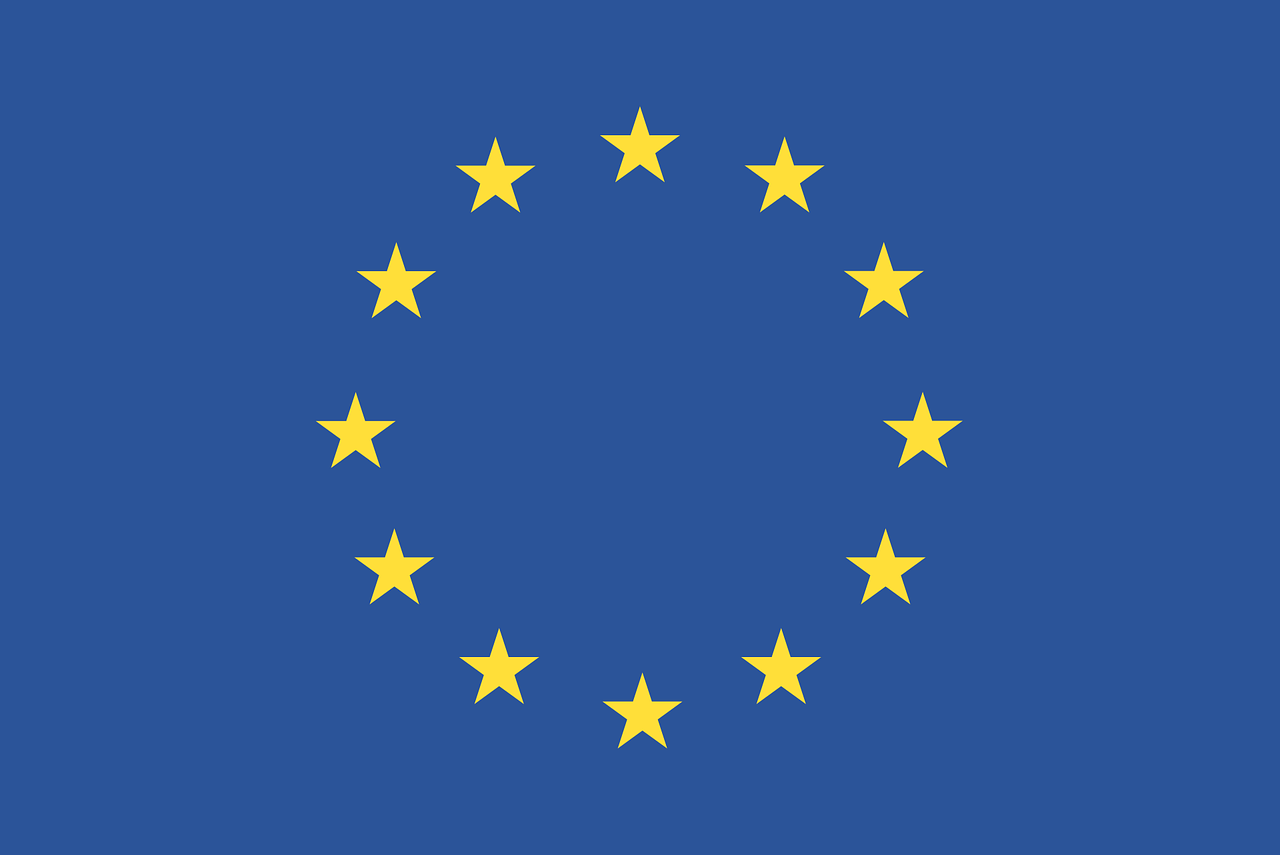 In order to defend the interests of the European leisure marine industry as efficiently as possible, EBI takes part in several EU-funded project. In a European project, organisations and stakeholders from different countries come together for several months to collaborate, learn from each other and address policy issue of common concern.
In order to defend the interests of the European leisure marine industry as efficiently as possible, EBI takes part in several EU-funded project. In a European project, organisations and stakeholders from different countries come together for several months to collaborate, learn from each other and address policy issue of common concern.
Participating in European projects offers some undeniable advantages: it helps extend our sector's network, it helps finance our activities, it reinforces our image as a guarantor of our sector's interests, and it allows us to participate in EU policies and to provide our input.
In this section, you will learn about the projects EBI participates in.
Ongoing projects:
- TEcoNaut (2024-2027)
- TWINNEDbyStars (2023-2026)
- Next BlueGeneration (2023-2025)
Past projects:
- EnviroNaut (2022-2024)
- Blue Generation (2018-2023)
- PHAROS4MPAs (2017-2019)
- TCC-SCV (2014-2016)
- Boat DIGEST (2013-2015)
EnviroNaut (2022-2024)
Key objective: Creating the first-ever curriculum for the position of “Environmental Officer in Nautical Tourism” and deliv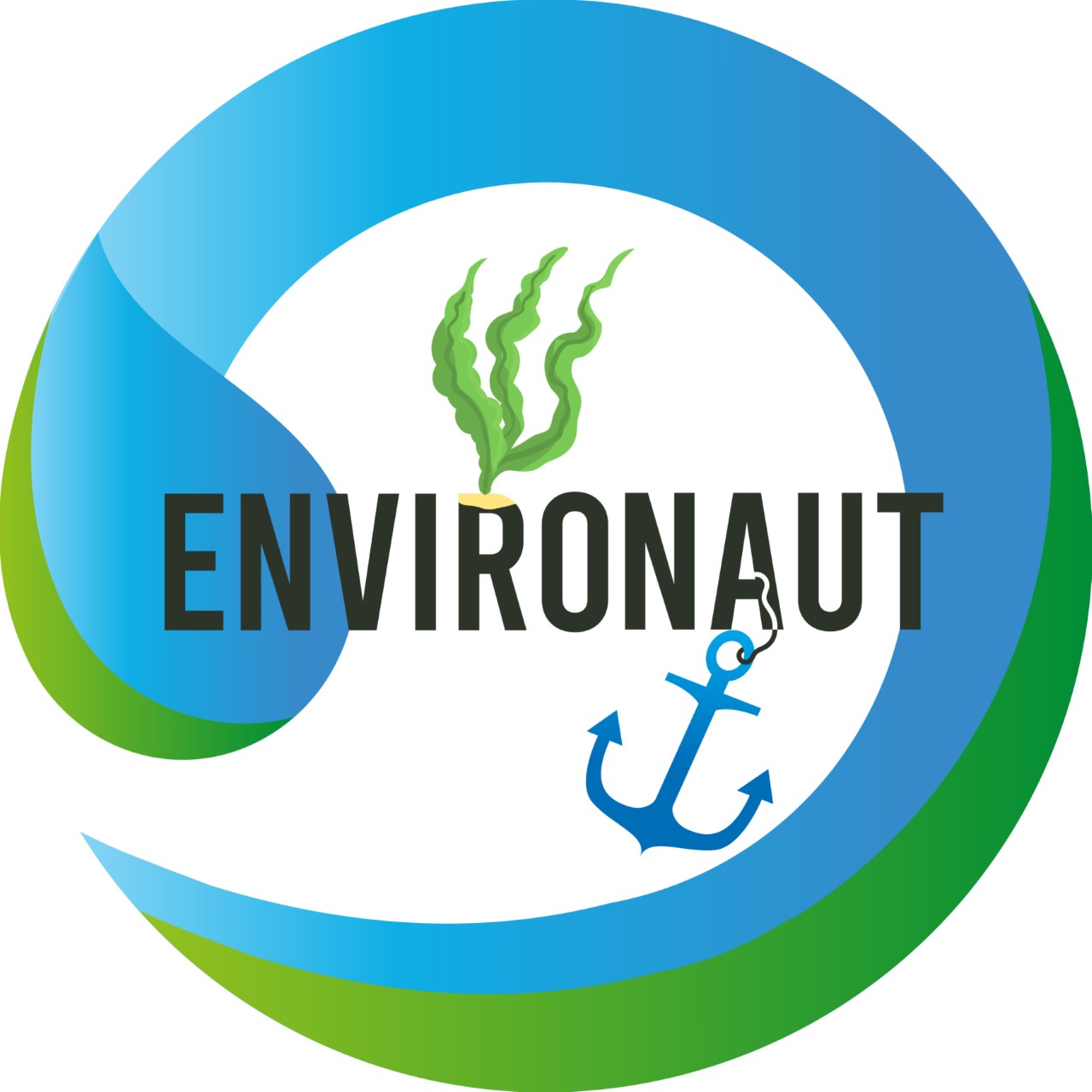 er it in form of a modular online course.
er it in form of a modular online course.
The main project objective is to create a first-ever curriculum for the position of “Environmental Officer in Nautical Tourism” and deliver it in form of a modular online course as a continuous VET training that does not currently exist in the sector.
The project will create new environmental competences for workers in this industry, bridging the gap between the training and skills needed in the boating industry and enabling the whole sector to become more environmentally friendly, follow the European Green Deal and the UN-SDG14 and creating a new set of future-oriented skills for the workers and their companies. This will help in increasing the attractiveness of the whole sector, enabling growth in the nautical tourism sector, with the related economic improvement and job creation.
The project will create a new curriculum that will be delivered in form of a modular online course, available in English, Spainsh, German and Greek. The course will be free for everyone and will serve as continuous training for employees in the nautical tourism sector and can also be used by water sport users and the general public to raise their awareness in good environmental practices in the recreational boating and water sports industry.
Project website: http://environaut.eu/
Blue Generation (2018-2023)
Key objective: Promoting youth employment in maritime sectors
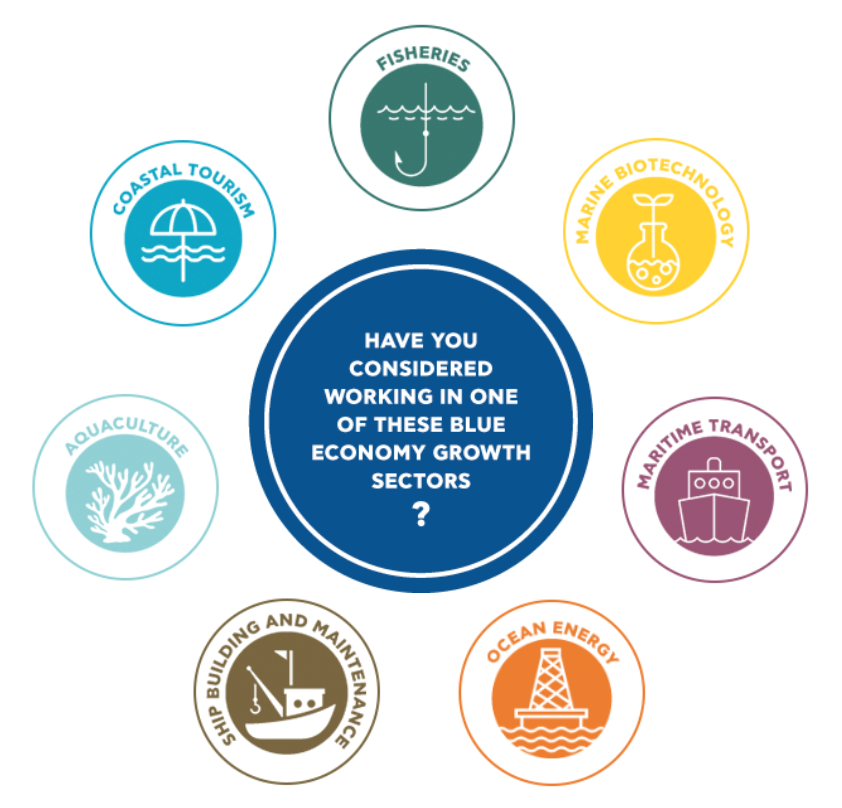 The Blue Generation project (2018-2023) aims at encouraging young people, especially those not in education, employment or training, to pursue a sustainable career in the blue economy. The project operates in Spain, Poland, Greece, Portugal and Bulgaria, and is funded by Iceland, Liechtenstein and Norway through the EEA and Norway Grants Fund for Youth Employment.
The Blue Generation project (2018-2023) aims at encouraging young people, especially those not in education, employment or training, to pursue a sustainable career in the blue economy. The project operates in Spain, Poland, Greece, Portugal and Bulgaria, and is funded by Iceland, Liechtenstein and Norway through the EEA and Norway Grants Fund for Youth Employment.
While the demand for workers in the blue economy is increasing, young people are not being attracted to maritime careers despite the large proportion of youth unemployment in Europe. Therefore, bringing young workers into the blue economy is an opportunity to increase employment and close the skills gap. It can also help enhance ocean literacy and ensure the development of a dynamic and sustainable blue economy.
The project provides a career portal advertising jobs, internships and training in the blue economy (sectors include coastal tourism, aquaculture, ocean energy, marine biotechnology, shipbuilding, maritime transport and fisheries). The carrer portal can be found here. The project also offers a set of free learning modules about jobs in the blue economy (here), as well as a blue careers guide (here), both of which EBI helped to develop. In addition, the project organises informative events and engages with high schools, adult education centres, NGOs, unmemployment services or local associations to promote blue career opportunities.
Project website: https://www.bluegeneration.org/index.php/en/
PHAROS4MPAs (2017-2019)
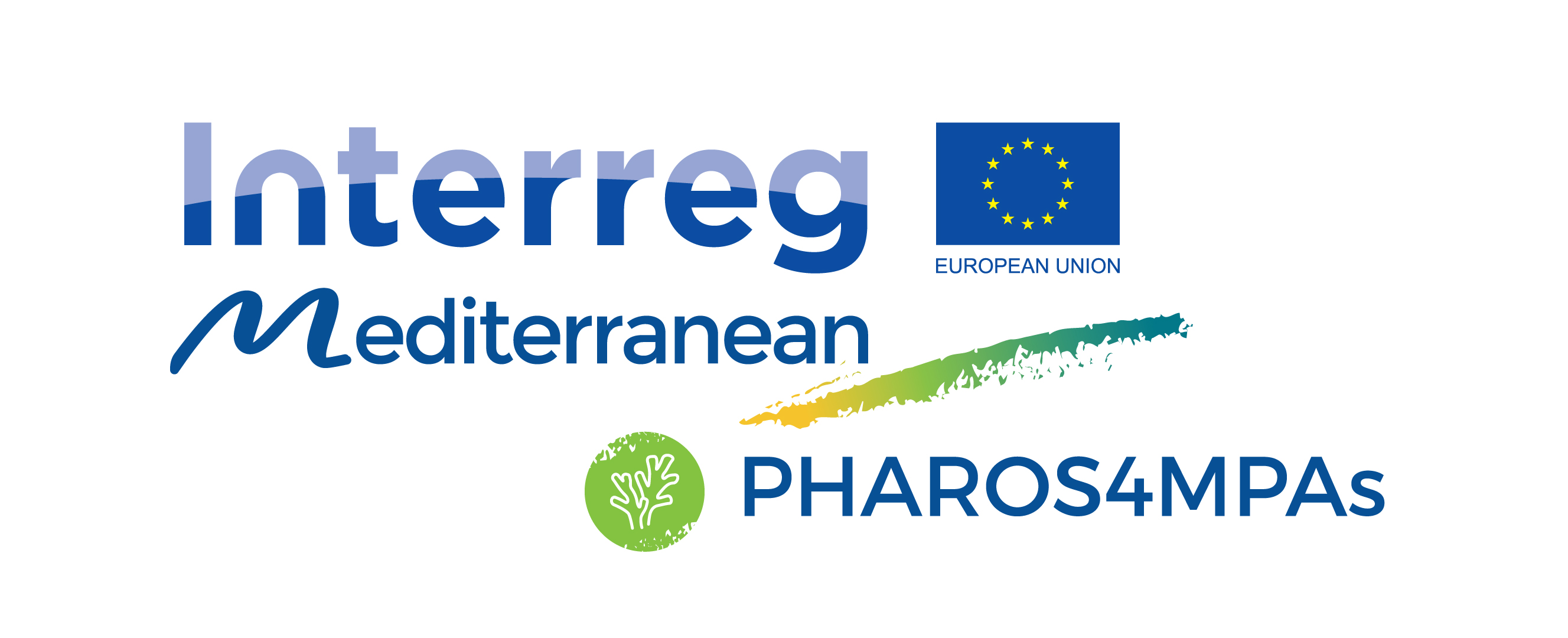
Key objective: Ensuring the sustainable management of Marine Protected Areas
The PHAROS4MPAs project aimed to enhance the management of Marine Protected Areas (MPAs) in the Mediterranean Sea through awareness raising, capacity building and networking, in order to preserve biodiversity and natural ecosystems.
In collaboration with a range of partners (including institutions, NGOs, industry actors and scientific bodies), among which was EBI, the project analysed the impact on MPAs of seven maritime sectors, namely offshore windfarms, maritime traffic and ports, cruises, leisure boating, recreational fisheries, aquaculture, and small-scale fisheries.
It then issued a report for each of those sectors, with recommendations to guide future sustainable interaction between the seven sectors and MPAs. EBI provided input on the impact of leisure boating and helped draft the recommendations.The reports can be found here. In addition, the recommendations were formatted into a user-friendly online tool that helps readers find the information that is relevant to them. The online tool can be found here.
Project website: https://pharos4mpas.interreg-med.eu/
TCC-SCV (2014-2016)
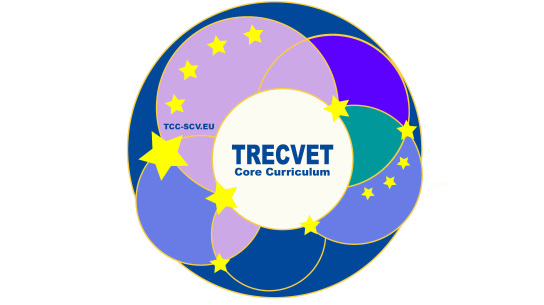
Key objective: Enhancing the comparability of skipper qualifications and encouraging their recognition across the EU
Currently, professional skipper qualifications are not mutually accepted between member states. This means that skippers with a Spanish qualification can only work on vessels with a Spanish flag, those with a German qualification can only work on vessles with a German flag, etc. This has a direct impact on the free movement of labour within the Single Market, hindering the mobility of professional skippers and limiting businesses' access to labour.
The TCC-SCV project (TRECVET Core Curriculum for Skippers of Small Commercial Vessels) tried to find a solution to this problem. The project analysed professional skipper qualifications from seven EU member states, broke them down into their component parts, and developed an online comparison tool, in order to allow for easy comparability between them. This enabled skippers to understand what additional training competences would be required when working in a vessel with a different member state flag. The tool showed that 80-90% of the content in the analysed qualifications was identical. The project then proposed a Core Curriculum together with National-Specific Modules. This system would allow skippers to personalise their training needs in an optimal way, completing the core curriculum and then taking the specific modules depening on which Member State they want to work in.
The project was led by a consortium of ten partners selected for their expertise, among which was EBI.
Project website: https://www.tcc-scv.eu/
Boat DIGEST (2013-2015)

There is an increasingly large number of recreational boats that come to their end of life and must be dismantled in a responsible manner. The Boat DIGEST project (which stands for Boat Dismantling Insight by Generating Environmental and Safety Training) tried to enhance the dismantling of end-of-life recreational boats, by improving the health, safety and environmental standards of dismantling practices andby raising awareness among boat users.
Firstly, the project produced a free online training module for dismantling companies and workers, consisting of four units, in order to increase the health, safety and environmental competences of dismantlers. Individuals who successfully complete it obtain a certificate granted by the University of Strathclyde. Secondly, the project also created an online awareness module for end-of-life boat owners, with guidance on good disposal practices. Furthermore, it produced an online map displaying boat dismantling companies, in order to help end-of-life boat owners locate professional waste management sites in Europe that deal with end-of-life boats. Finally, four sets of guidelines were produced, targeting various audiences (boaters and nautical associations, marinas and leisure harbours, repair and refit companies, and boating schools), with information on the actions that these four groups can take and the role they play in raising boat owners’ awareness about the issue. The learning tools, the network map and the guidelines are all available on the Boat DIGEST website.
Project website: http://www.boatdigest.eu/



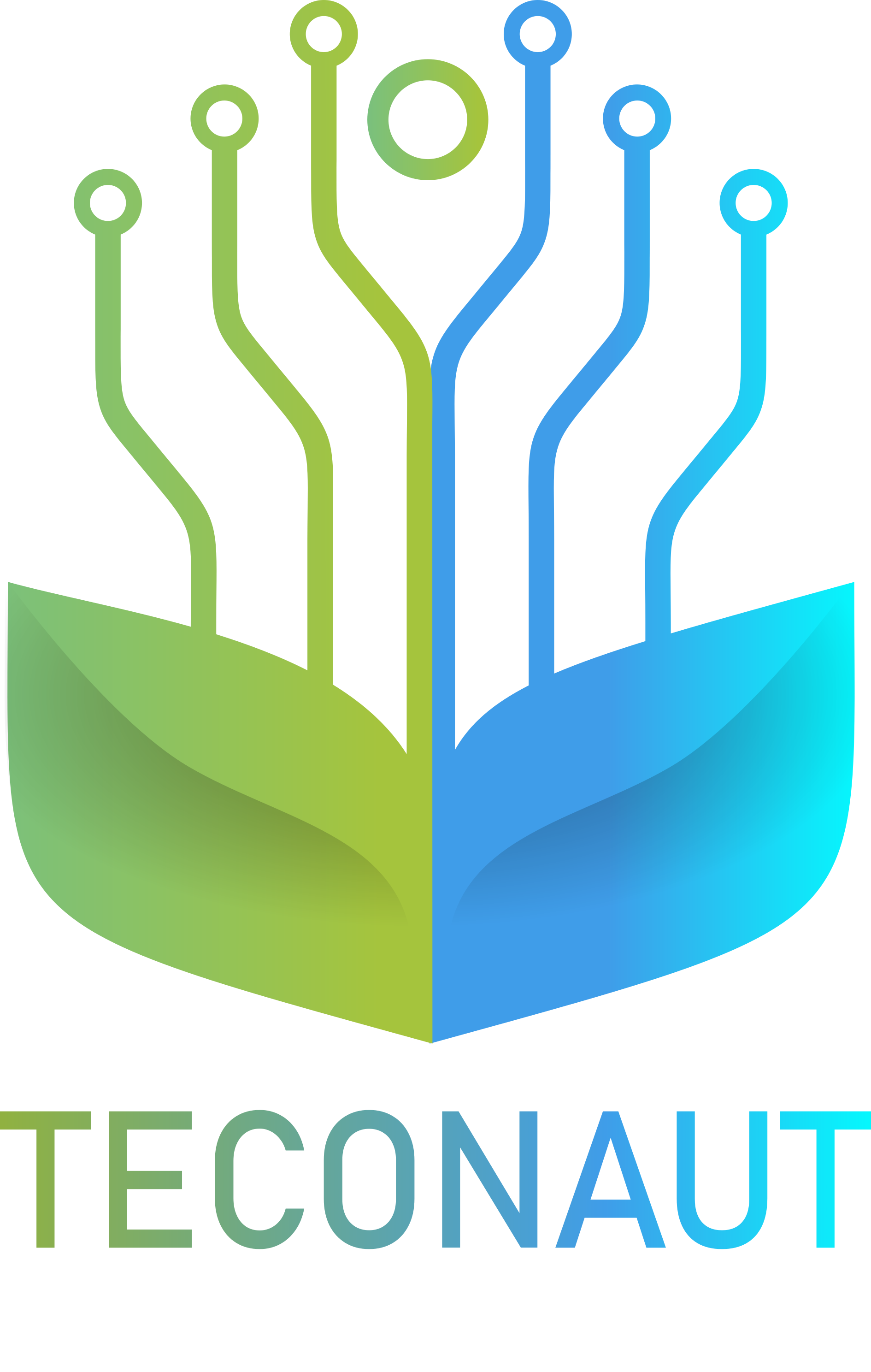 Key objective: Promoting sustainability in the European boating industry through targeted vocational training and collaboration between industry, academia, and vocational education.
Key objective: Promoting sustainability in the European boating industry through targeted vocational training and collaboration between industry, academia, and vocational education..png)
